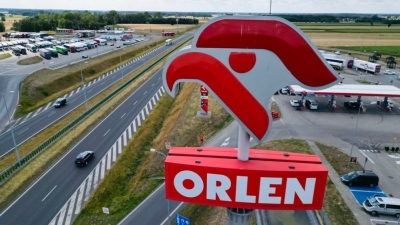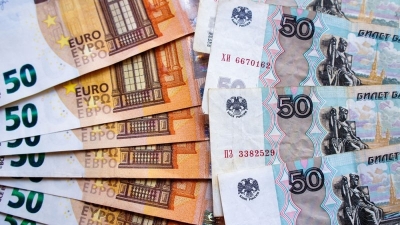Déjà vu? Negotiators confident green jet fuel deal will be struck tonight

Forecasting the outcomes of trilogues – legislative negotiations between EU countries, the European Parliament, and the European Commission – is a dangerous game (as this reporter has learned to his detriment).
It may seem as though every element is in place for a deal to be struck, and every party may express the utmost confidence, but then some under-considered issue rears its head, and the tentative agreement collapses.
Such was the case with ReFuelEU Aviation, the EU’s law to compel aircraft refuelling in the bloc to uplift a gradually increasing percentage of green jet fuel, which was due to be agreed on last December.
Under the law, sustainable aviation fuel (SAF) must be blended with kerosene in growing quantities as SAFs are considerably less polluting than their fossil fuel counterparts, making them a key pillar to cutting emissions from flying.
But negotiations hit a brick wall over the precise definition of SAF and how much SAF aircraft should be required to uplift.
The question of whether low-carbon hydrogen made with nuclear power should be considered a SAF also proved particularly divisive.
This evening, negotiations will resume on the file after a four-month break.
Most EU countries that EURACTIV spoke to are confident that an agreement will be reached this time around. One, however, cautioned that “it is not a done deal yet”.
There are still diverging views over the role of low-carbon hydrogen among member states, and Parliament and Council negotiators are yet to see eye-to-eye on the SAF targets.
It was hoped that the question of nuclear-derived hydrogen would be resolved under another piece of legislation, the Renewable Energy Directive, or RED, but the status of nuclear hydrogen remains complicated.
In principle, nuclear-derived hydrogen is permissible, but under strict conditions. These conditions are such that some have questioned whether they can be met.
Others see the RED agreement as pushing open the door for including nuclear-derived e-fuels in ReFuelEU.
“We have laid a first stone on the recognition of the nuclear-renewable complementarity, and it is rather well on the way for the legislation on synthetic fuels for aviation,” Simon Pujau from the French hydrogen industry association told EURACTIV in early April.
To what degree ReFuelEU will replicate the conditions under RED if at all, remains to be seen.
Another controversial option on the table is granting differing SAF targets for member states. For example, subjecting Austria to a 3% SAF mandate, while neighbouring Slovakia need only supply 1%.
The Parliament, the Commission, and airlines are dead against this idea, stressing that any rules should apply uniformly across the bloc.
“The absence of a common SAF blending approach at EU level would lead to a number of negative economic and environmental consequences,” warned Laurent Donceel, acting managing director of airline trade association A4E.
“Once in place, the European SAF mandate should supplant national mandates and harmonise all relevant legislation to avoid fragmentation of the single aviation market in Europe,” he added.
Ultimately, member states will need to enact the law, a reality they will use to try and force concessions.
So will the EU’s long-gestating green jet fuel law take flight? Or will it remain grounded?
No predictions this time (but either way, full coverage will be on EURACTIV tomorrow).
Global aviation industry warns EU against ETS expansion to international flights
The EU has signed off on revising the emissions trading scheme (ETS), marking a major expansion of the bloc’s carbon market.
In addition to creating a separate ETS for road transport and buildings, the legislation reviewed the rules for the ETS for aviation.
Green campaigners generally considered the revision a missed opportunity, decrying the decision to keep the ETS applicable to inter-European flights only, letting long-haul emitters off the hook.
However, there may be more to the story.
Within the legislation is a 2026 review clause, which threatens to extend the ETS to all flights into and out of the EU if a review finds the UN offsetting scheme CORSIA is not “sufficiently delivering on the goals of the Paris Agreement”.
The UN’s CORSIA applies to emissions from international flights but is considered less stringent than the EU carbon market.
Given environmentalists’ sustained criticism of CORSIA for doing little to deter polluters, there is a realistic chance that the EU will indeed expand the ETS scope in 2026.
For green campaigners, this would represent a win. But for the international aviation community, the review clause is an affront to the global order.
According to Rafael Schvartzman, regional vice president for Europe of the global airline trade association IATA, the EU’s review clause “hijacks CORSIA, as well as creates potential competitive distortions to the market”.
“EU governments should stick to the commitments they have repeatedly made at ICAO [the UN aviation body], which is to make CORSIA a success and encourage its global adoption as swiftly as possible,” said Schvartzman.
“Holding CORSIA hostage is failing in that duty,” he added.
That IATA is already setting out their position shows how seriously this is being taken outside of Europe.
Expect fireworks in the run-up to 2026.
All flights grounded in Berlin as security staff strike
Berlin-Brandenburg airport found itself in the odd position of having passengers arrive, but no passengers depart on Monday (24 April).
All departing flights – some 240 in total – were grounded following the announcement of a one-day strike by the German trade union Verdi. Around 70 flights due to land were also affected.
Security staff held the strike who protested stagnant wages despite a jump in the cost of living. The workers’ trade union is pushing for better pay for night, weekend and public holiday shifts.
The walkout began at 3.30 am on Monday morning and lasted until midnight, paralysing the airport.
Ground staff also called partial strikes in Hamburg airport, affecting around a third of scheduled flights.
The disruption is just the latest in a wave of strikes that have roiled the EU’s largest economy as German workers seek to maintain their purchasing power amid high inflation.
Last week saw strikes in the airports of Duesseldorf, Hamburg, Cologne-Bonn, and Stuttgart, leading to more than 700 flights being cancelled.

A roundup of the most captivating transport news.
EU seals carbon market reform to speed cuts in greenhouse gases
The EU’s 27 member countries gave final approval Tuesday (25 April) to a sweeping reform of the bloc’s carbon market to accelerate the reduction in greenhouse gases, including a new carbon border tax on imports.
US carbon capture incentives leave EU ‘lagging behind’, biofuel makers warn
Efforts to boost carbon capture and storage (CCS) in Europe are insufficient, according to biofuels makers, who say the United States offer better incentives.
Support grows among member states for waste biofuels aviation cap
At least five EU countries want to see the amount of green jet fuel from used cooking oil (UCO) legally capped, EURACTIV has learned, a requirement that would have significant ramifications for producing sustainable aviation fuel (SAF) in Europe.
Stellantis tests e-fuels on existing engines to decarbonise fleet
Carmaker Stellantis is testing synthetic e-fuels made with renewable energy on 28 types of its internal combustion engines, a step it said on Thursday (20 April) could help decarbonise its existing European fleet.
EU’s global shipping approach puts green credentials on the line
To retain its credibility, the EU must back concrete 2030 and 2040 emission reduction targets for shipping at the final round of negotiations on the International Maritime Organisation’s climate strategy, writes Anaïs Rios of Seas at Risk.
More on the same topic...




